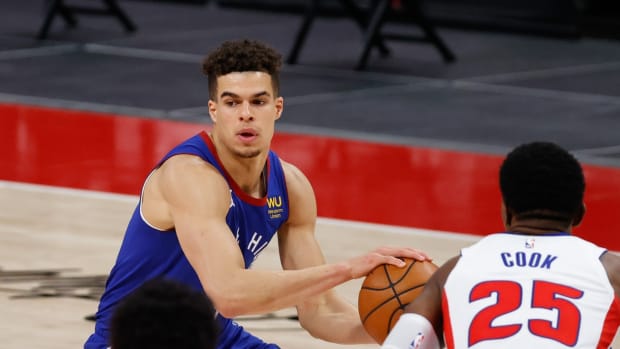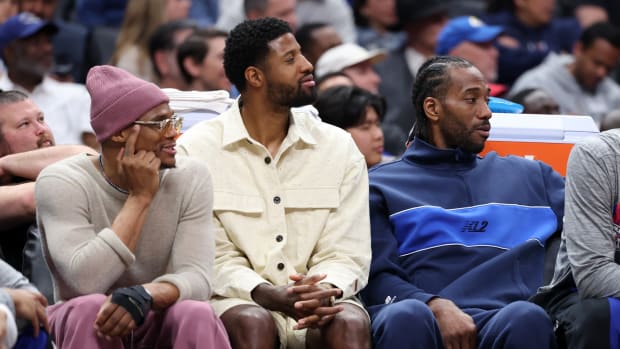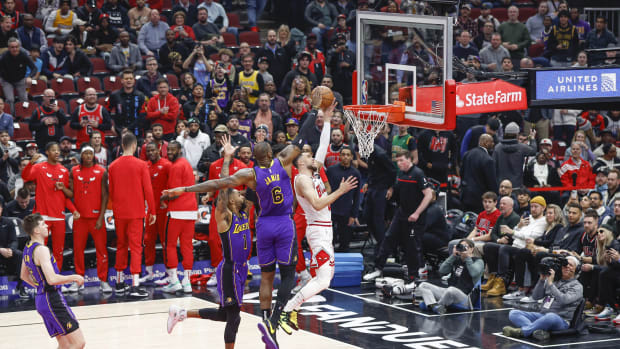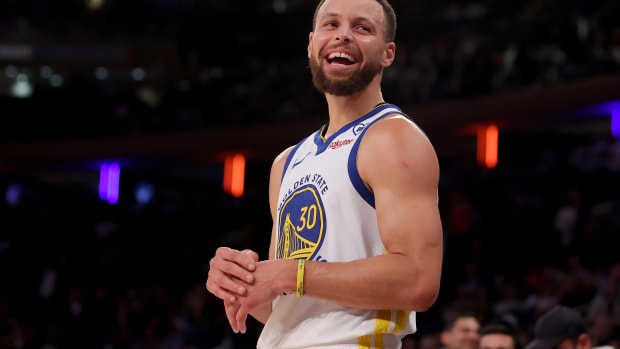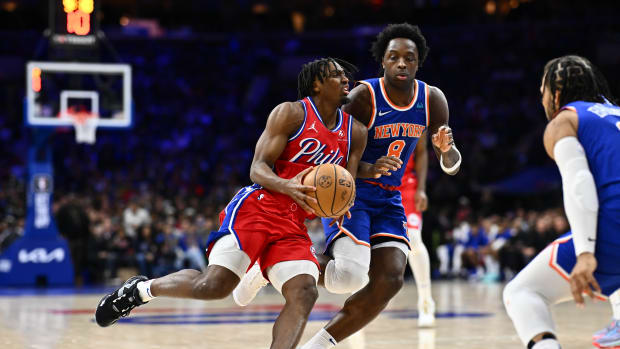Donald Sterling no-shows for first day of hearings in lawsuit against wife
Donald Sterling’s legal efforts to keep the Los Angeles Clippers took an unusual and counterproductive twist today, the first day of the probate hearing over the Sterling family trust.
Attorneys for Shelly Sterling began the hearing by calling Donald Sterling to the witness stand. Curiously, the 80-year-old billionaire was nowhere to be found. He was neither in court nor nearby the courthouse. Donald Sterling’s attorneys initially did not provide a clear explanation for his absence. After court, Sterling attorney Bobby Samini offered one. He stressed their legal team mistakenly concluded that a motion requiring the involvement of a federal judge would have taken more time and Donald Sterling was apparently not around when the decision was made. Samini, in other words, wanted to take the blame for Donald Sterling's absence.
Impact of Donald Sterling’s absence on the hearing
Often in legal proceedings, both sides agree on a pretrial witness schedule. The schedule indicates when each side plans to call certain witnesses. The schedule helps each side prepare for the proceeding and relieves witnesses from having to attend court every day. No such schedule was apparently developed for the Sterling trust hearing. With that in mind, Donald Sterling should have made himself available throughout the entire four-day hearing. This is especially true given that Sterling is not a mere witness in the hearing, but in fact is a party to it. Shelly Sterling’s attorneys also contend Donald Sterling was subpoenaed to be in court today.
Donald Sterling’s failure to be in court, and his attorneys failure to make sure he was there, risks aggravating Los Angeles County Superior Judge Michael Levanas. Judges expect that parties appearing in their court will show respect. One basic form of respect is to show up on time or at least notify the court in advance of an absence.
Donald Sterling could mitigate the impact of his absence by appearing in court on Tuesday. His attorneys assure that he will be there and ready to testify. If instead Sterling remains away, Levanas could take one of several actions. Most likely, Levanas would simply continue the hearing without Sterling, and infer from Sterling’s absence that Sterling refuses to participate. The absence of Donald Sterling personally advocating his case would probably make Levanas more inclined to rule in Shelly Sterling’s favor.
Alternatively, Levanas could end the proceeding early by issuing a default judgment against Donald Sterling. The judgment would be premised on Sterling’s failure to appear in court. It is unlikely that Levanas would issue a default judgment. This hearing involves multiple witnesses and, at least theoretically, Donald Sterling could warrant a favorable decision from Levanas even if he does not testify. After all, if Levanas determines that Shelly Sterling failed to follow the trust’s procedures, then Donald Sterling’s testimony would not be needed to find in his favor.
Examining Donald Sterling's lawsuit and how it impacts the NBA
Levanas could take a still more dramatic step by issuing a bench warrant for Donald Sterling’s arrest. Pierce O’Donnell, one of Shelly Sterling’s attorneys, urged Levanas to issue such a warrant. The warrant would be a judicial order authorizing law enforcement to arrest Sterling and bring him to court or jail him in contempt of court. Bench warrants are usually reserved for criminal proceedings, not civil ones. It is much more likely that Levanas would simply continue the trial without Donald Sterling, and factor his absence into a decision.
Federal judge rejects Donald Sterling’s attempt to move case out of California state court
Last Thursday, Donald Sterling filed a notice of removal to federal court. By doing so, he hoped that a federal judge, rather than Levanas, would hear the trust dispute. As explained yesterday on SI.com, Sterling’s legal argument for removal was problematic. Sterling insisted that disclosure of his neurological tests violated a federal law, the Health Insurance Portability and Accountability Act (HIPAA). California judges, however, have presided over cases involving HIPAA claims. In addition, HIPAA probably did not empower Sterling with a legal claim in this situation. Even if it did, Sterling likely waived the right to bring it under paragraph 7.5.c of the family trust. This afternoon U.S. District Judge George H. Wu rejected Donald Sterling’s federal removal attempt, thereby allowing Levanas to begin the probate hearing.
NBA free agency: Latest buzz, rumors
Testimony of Dr. Meril Platzer
The substance of the probate hearing took focus when neurologist MerilPlatzer took the stand. Platzer is one of two physicians who evaluated Donald Sterling’s cognitive state in May and concluded that he was incapacitated and thus unable to discharge his duties and obligations under the trust. In accordance with the trust’s procedures, Shelly Sterling utilized the conclusions of two physicians to remove her husband as a trustee and become the sole trustee. As the sole trustee, Shelly Sterling reached an agreement with Steve Ballmer to buy the Clippers, which are owned by the trust, for $2 billion.
Platzer testified that she examined Donald Sterling at his home on May 19 and determined he suffers cognitive impairment consistent with Alzheimer’s. Platzer, however, acknowledged that her visit incorporated social elements. Most notably, Platzer, Shelly Sterling and Donald Sterling would later dine and have drinks. Watch for Donald Sterling’s attorneys to portray Platzer as failing to conduct a proper medical examination. If they can undermine Platzer’s testimony, Levanas would be more inclined to find Shelly Sterling lacked the necessary confirmation of two physicians that Donald Sterling was incapacitated.
Michael McCann is a Massachusetts attorney and the founding director of the Sports and Entertainment Law Institute at the University of New Hampshire School of Law. He is also the distinguished visiting Hall of Fame Professor of Law at Mississippi College School of Law.































